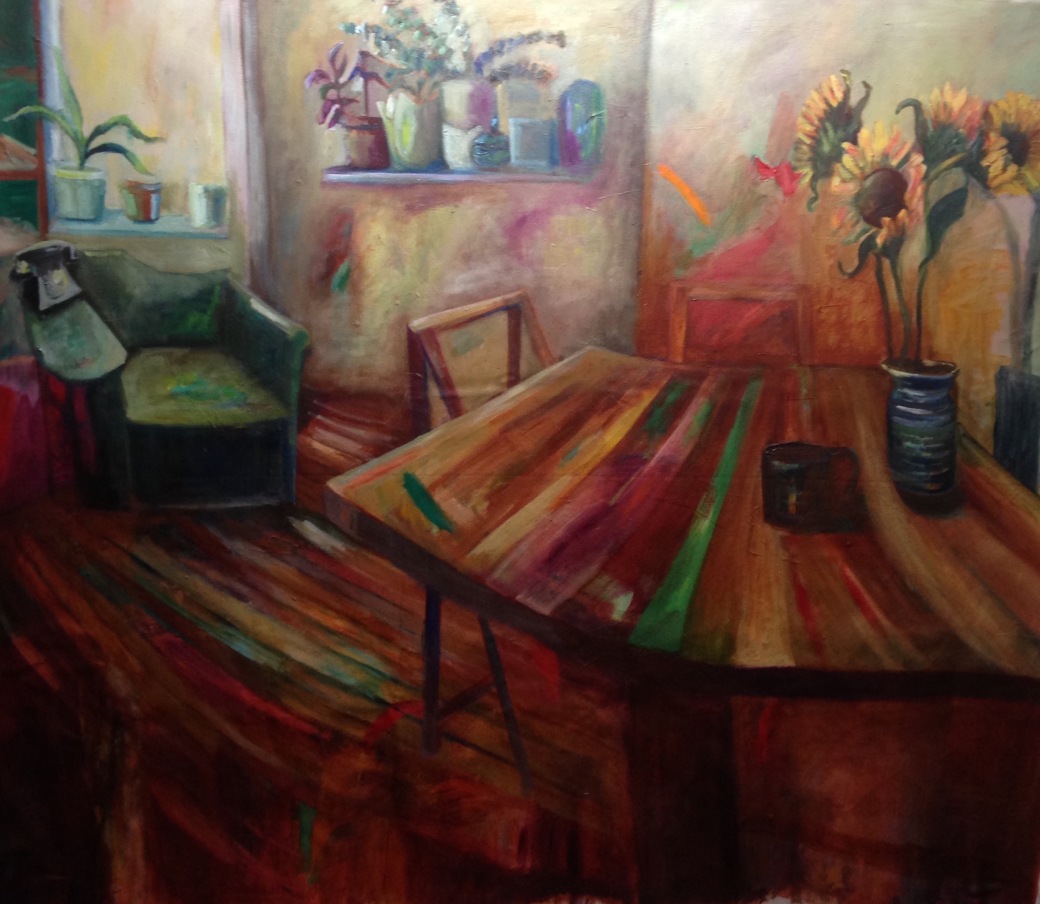
I spent today island-hopping, looking for houses where my parents might enjoy living. They recently sold the farm where I lived from ages 10 to 18 — and where they have spent the past 20 years. Instead of settling into retirement in the comfort of routine and well-known places, they are ready for a new adventure and different vistas. I find their courage admirable.
A week ago, I went to Texas to pack up all the paintings that my parents have been so kindly storing in a shed on their property. I stacked these huge canvases in an 8 x 6 ft box and padlocked the door shut. Around now, all of these pieces I spent so much time creating are on the back of some Uhaul truck, hopefully safely making their way to Seattle.
When the pod arrives at my front door, I have no idea where I will store the paintings. It is among the many unknowns in my life lately. When I was packing up my childhood room and saying goodbye to my parents’ farm last week, it struck me how lost I’ve felt lately. I live in a city just because I wanted to — with no rhyme or reason to the decision. I haven’t had a steady job since last summer’s lay-off. I don’t have a proper studio for art anymore — or the funding for one even if I could find the right space.
Part of the sorrow of saying goodbye to the childhood home is the feeling that somehow that means you are walking into adulthood. I know I am not the only adult who still does not know what she wants to be when she grows up . . . or what growing up even means . . .
But I do know that I saw a beautiful sunset from the side of the ferry as I headed home from Vashon Island, the glow from behind the mountains reflecting on the water. And I know that all we can do is take things one day at a time, just keep moving forward.
Try as we might, we’re not really in control, as we spin on this planet into the vastness of the universe. I suppose we have to learn to let go and just enjoy the ride.
As Cynthia Ritchie wrote in a story called “The Confrontation” about facing a bear in the Alaskan woods while running on a trail alone:
“So much of life is chance. There are no guarantees. But there are vast landscapes and dangers and wild moments of good luck.”



